Top 1 Powerful Learning Management System (LMS) for Seamless and Scalable Education
Whether you’re an institution, a corporate trainer, or an individual course creator, choosing the right LMS is the key to unlocking streamlined, scalable, and smart learning experiences.
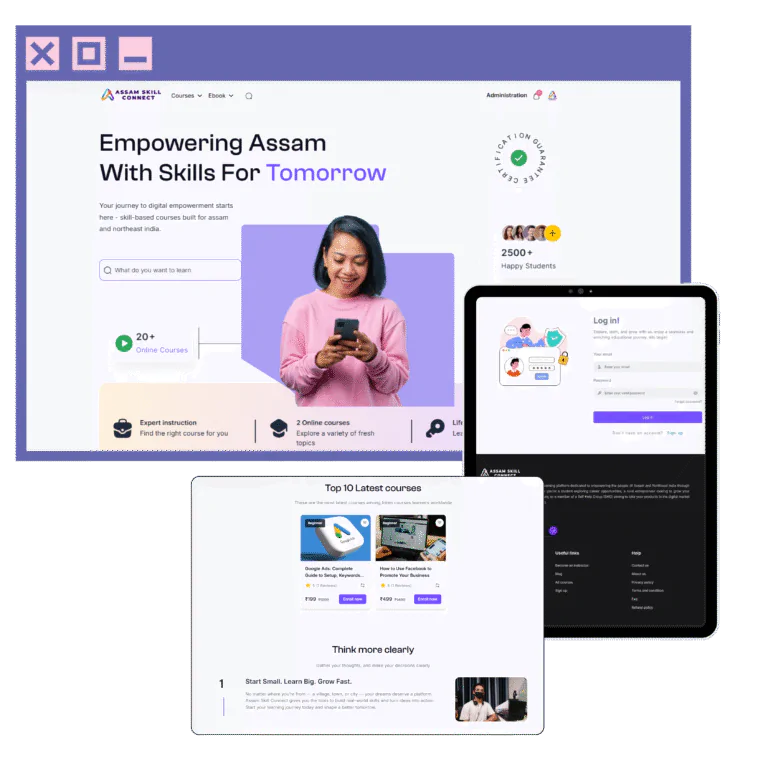
Interactivity is key to keeping students engaged. The Top 1 Powerful Learning Management System (LMS) for Seamless and Scalable Education includes gamified quizzes, live video classes, discussion forums, and multimedia-rich content. These features create dynamic and engaging learning experiences that boost comprehension and retention.Scalability is no longer a concern when you're backed by the Top 1 Powerful Learning Management System (LMS) for Seamless and Scalable Education. Whether you're catering to 10 or 10,000 learners, this LMS grows effortlessly with your needs. Its cloud-based infrastructure ensures performance never takes a hit, even during peak usage.
Automatically assigns courses rades quizzes sends reminders and tracks progress
In the rapidly evolving world of digital learning, choosing the Top 1 Powerful Learning Management System (LMS) for Seamless and Scalable Education is the smartest step any educator, trainer, or institution can take. It bridges the gap between traditional classrooms and modern e-learning, creating a flexible, interactive, and cost-effective environment for learners across the globe.


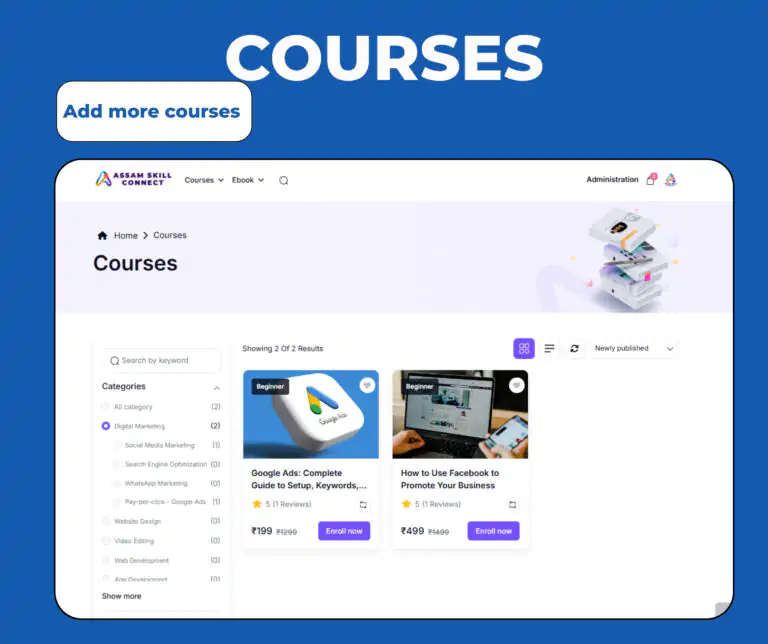
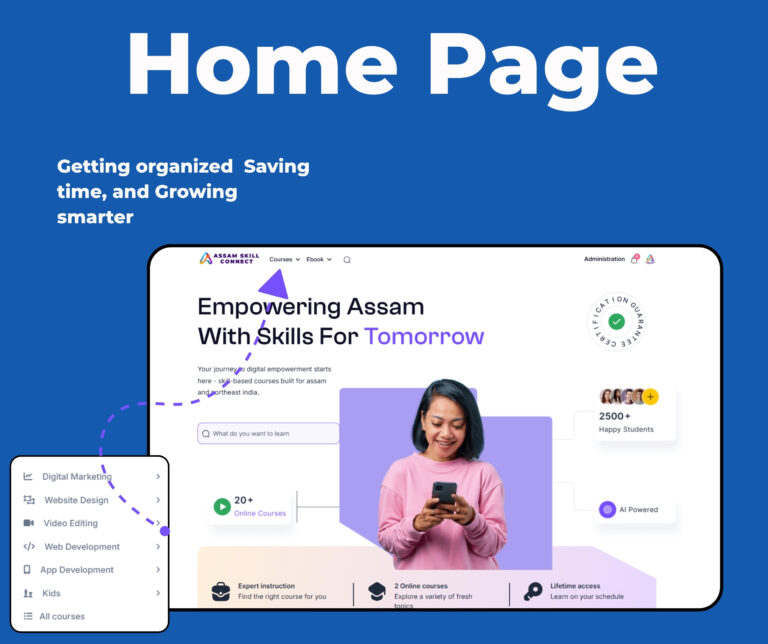
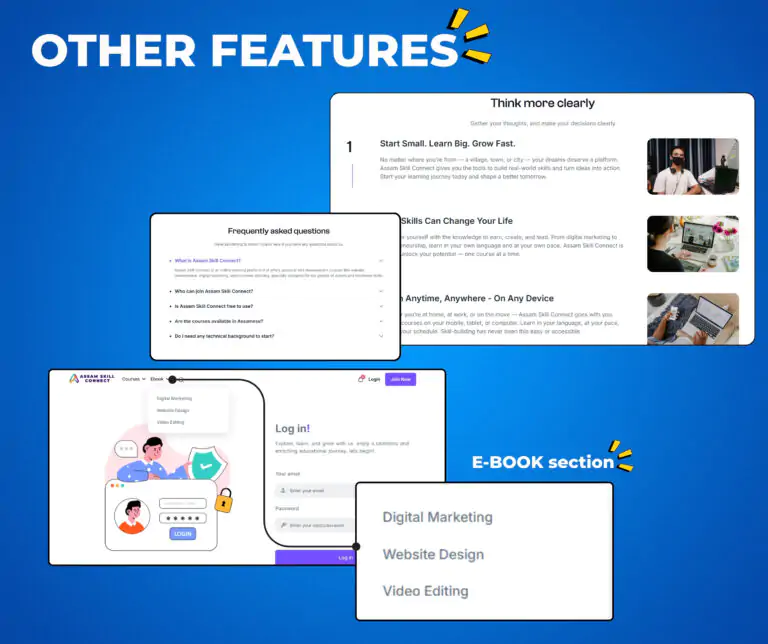


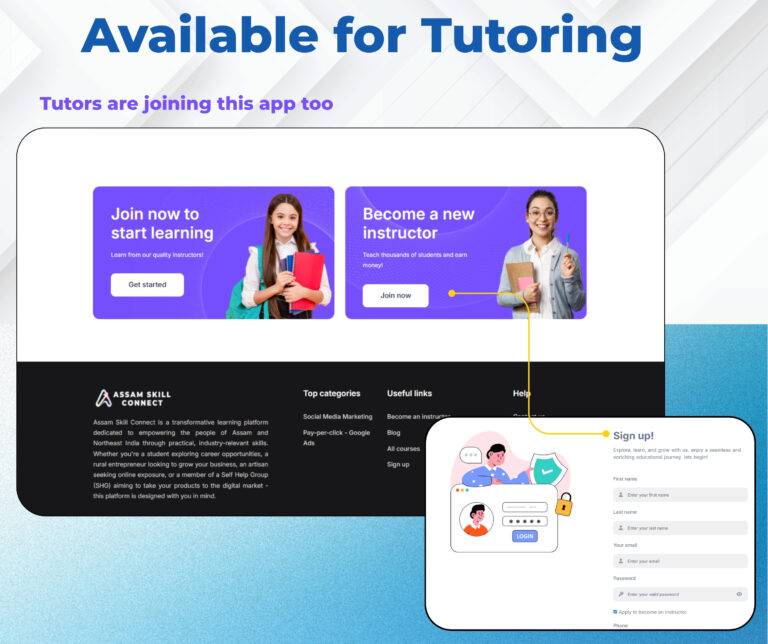

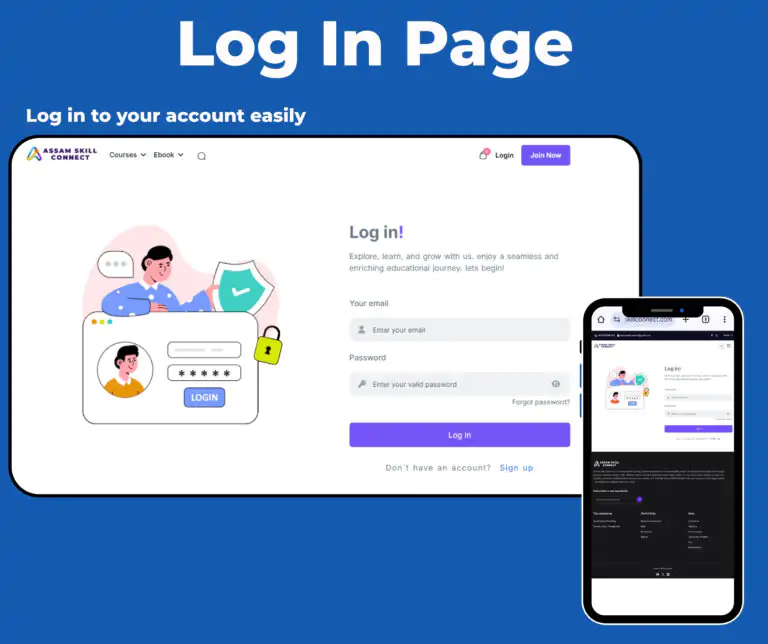
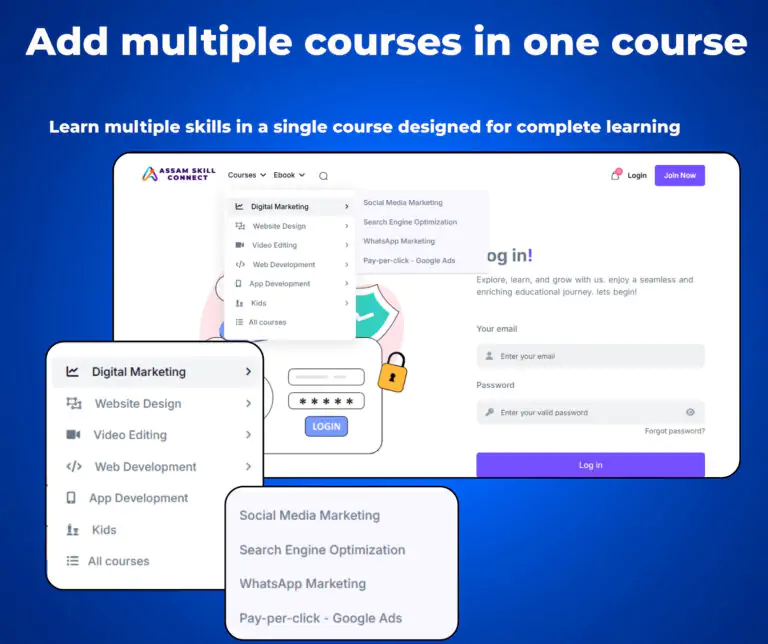
Project Objective
Security is a top priority, especially when dealing with user data and course content. The Top 1 Powerful Learning Management System (LMS) for Seamless and Scalable Education offers end-to-end encryption, secure logins, and compliance with global standards like GDPR and ISO, making it safe and trustworthy for institutions of all sizes.
- Upload and organize course content (videos, PDFs, slides)
Conduct assessments and quizzes
Track learner progress and performance
Host live classes or webinars
Issue certificates upon completion
Provide mobile learning experiences
Course Management: Create multimedia lessons and structured modules
Live Class Integration: Connect Zoom, Google Meet, or Microsoft Teams
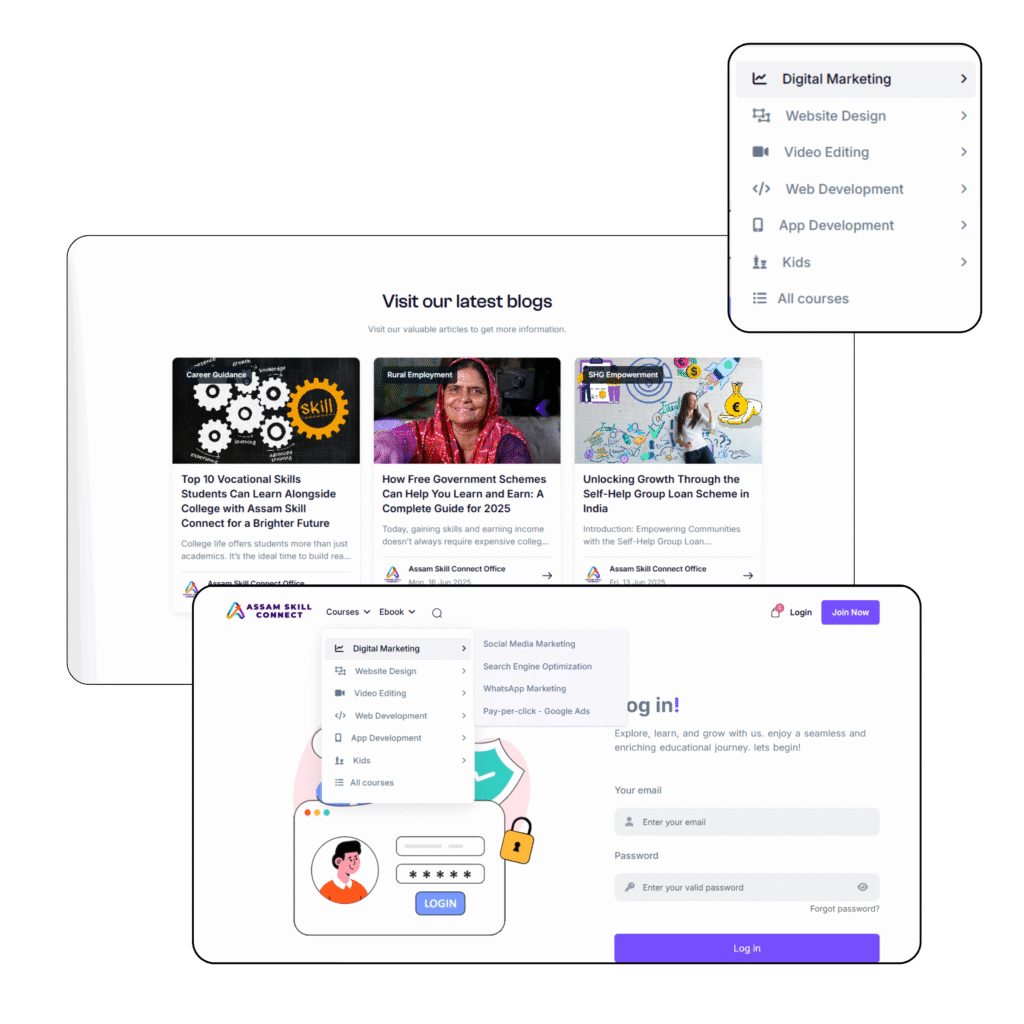
Why an LMS Needs a Specialized management System
Learners today want access on the go. That’s why the Top 1 Powerful Learning Management System (LMS) for Seamless and Scalable Education comes with a mobile-first design, offering offline access, push notifications, and real-time updates through a dedicated mobile app. It fits perfectly into the modern learner’s lifestyle.
Centralized Learning
- Time-Saving Automation
- Remote & Mobile-Friendly Learning
- Consistent Training Delivery
- Progress Tracking & Reporting
- Interactive & Engaging Content
Excited to try your journey with UJU Ecosystem?
Schedule a demo today and discover new possibilities with UJU Ecosystem

Enjoy The Best Experience with Us
At Ujudebug, we don’t just build apps—we craft seamless digital experiences designed to make life easier, smarter, and more connected. Whether you’re an individual, a growing business, or a bold startup, Ujudebug delivers cutting-edge solutions backed by a deep understanding of local needs—especially in regions like Assam and Northeast India.
FAQ
Find Out Answers Here
A Learning Management System (LMS) is a software platform used to deliver, manage, and track educational or training content. It helps schools, businesses, and organizations provide structured learning experiences to students, employees, or customers.
It automates daily tasks, reduces manual errors, an
Anyone who needs to train or educate a group of people can use an LMS. This includes:
Schools and colleges
Coaching centers
Government training programs
Corporate HR/training departments
NGOs and skill development missions
Freelancers and online educators
provides real-time data for smarter decision-making.
Key LMS features include:
Course creation and multimedia content support
Quiz and assignment tools
Student progress tracking
Certificates and badges
User management and access control
Mobile-friendly learning
Live class integration (Zoom, Google Meet)
Analytics and reports
Payment gateway for paid courses
An LMS helps you:
Save time through automation
Provide flexible, anytime-anywhere learning
Standardize training or education quality
Track learner performance in real time
Engage learners with interactive and gamified tools
Scale your teaching to thousands of learners
Absolutely. A good LMS is responsive and works across smartphones, tablets, and computers. Some platforms also offer dedicated Android/iOS apps.

FAQ
Here’s a relevant fact about LMS
According to a 2024 report by Statista, the global Learning Management System (LMS) market is projected to reach $47.47 billion by 2030, growing at a compound annual growth rate (CAGR) of 14.6% from 2023 to 2030.
Why it matters:
This growth reflects the rising demand for online and blended learning in corporate training, schools, and higher education, especially after the pandemic reshaped how people learn and work.
Would you like more facts focused on schools, corporate training, or LMS technology trends?
A 2024 report by Fortune Business Insights reveals that the corporate segment dominates the LMS market, accounting for over 65% of global LMS revenue due to increased demand for remote training, compliance, and onboarding.
Analysis:
As hybrid work becomes standard, companies are investing heavily in LMS platforms to ensure workforce productivity and regulatory compliance. Sectors like IT, healthcare, and finance are leading adopters. LMS platforms are evolving to support microlearning, performance tracking, and integrations with HR tools, making them indispensable in corporate L&D (learning & development) strategies.
According to Research and Markets, the Asia-Pacific LMS market is expected to grow at the highest CAGR globally, driven by government-led digital learning initiatives in India, China, and Southeast Asia.
Analysis:
With increased smartphone penetration and lower-cost internet, eLearning has become accessible to a broader population. India’s National Education Policy and government-sponsored digital platforms like SWAYAM are boosting adoption. Local EdTech startups are also integrating LMS features into their offerings, targeting rural learners and low-bandwidth environments.
A 2025 report from Technavio states that AI-powered LMS solutions are seeing a 30% higher adoption rate than traditional LMS platforms in North America and Europe.
Analysis:
Artificial Intelligence is transforming LMS functionality through adaptive learning paths, personalized content recommendations, and automated grading. AI-driven analytics are enabling institutions and enterprises to identify learning gaps, predict learner performance, and improve engagement. This trend reflects the shift toward data-backed, learner-centric education.






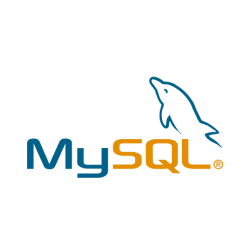

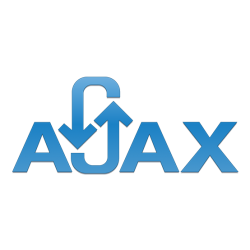




 [/one_third][two_third]With a team of skilled software Developers, Ujudebug is the best IT Solution Company in Assam. Fully Customized Software Development services with multiple platforms. Our award winning team will we provide the best experience to customers at an affordable price.
[/one_third][two_third]With a team of skilled software Developers, Ujudebug is the best IT Solution Company in Assam. Fully Customized Software Development services with multiple platforms. Our award winning team will we provide the best experience to customers at an affordable price.